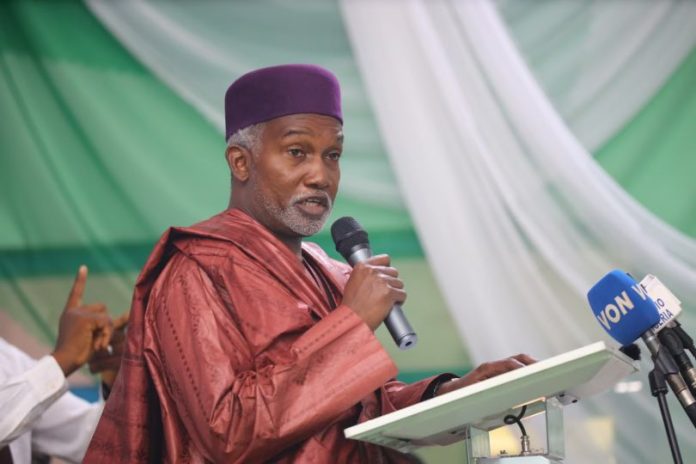

Nigeria has called for the creation of a specialised court to handle piracy cases in the Gulf of Guinea.
The Minister of Foreign Affairs, Ambassador Yusuf Tuggar, made the appeal during the 6th ordinary session of the Assembly of Heads of State and Government of the Gulf of Guinea Commission in Accra, Ghana, on Tuesday.
Addressing the assembly, Tuggar stressed the importance of establishing a court to bring maritime criminals to justice, emphasising piracy as an international criminal offence.
“The importance and significance of the Gulf of Guinea to Africa cannot be overemphasised. To this end, Nigeria takes this opportunity to reaffirm its commitment to the work and mandate of the Gulf of Guinea Commission.
“As a demonstration of our commitment to the Gulf of Guinea Commission, Nigeria’s National Assembly passed the Suppression of Piracy Other Maritime Offences Act in 2019 to prevent and suppress Piracy, Armed Robbery and any other unlawful acts against any vessels unlawfully operating in the Gulf Region.
“Nigeria continues to deploy significant resources towards tackling piracy in the Gulf of Guinea. This has resulted in a significant containment of threats. We are proud to state that since 2022 till date, there have been no incidents of piracy recorded in Nigeria’s territorial waters”, the minister noted.
He proposed agreements with regional states to facilitate the trial of offenders, highlighting the need for a competent jurisdiction within the Gulf of Guinea.
Tuggar added, “Your Excellencies, to counter the soft bigotry of low expectations, we must consider setting up a specialised court in our region to try maritime piracy cases. Piracy is regarded as an international criminal offence; international jurisdictions are replete with examples of bringing offenders to book.
“The time is apt for the GGC to step forward and lead the way in establishing a specialised court to handle the trials of maritime crimes. This requires agreements with regional states and setting up processes to facilitate the trial of offenders in the court of competent jurisdiction that we would establish.”
Tuggar also urged the commission to enhance efforts to protect the environment from degradation, prevent the dumping of radioactive material and nuclear waste, and guard against pollution by ships.
He called for the endorsement of a Combined Maritime Task Force to promote regional synergy in safeguarding the Gulf’s waters.
According to the European Union, the Gulf of Guinea is crucial for global oil transport, containing 10 per cent of the world’s oil reserves and serving as a major route for ships carrying oil and other goods. However, piracy remains a significant threat in the region.
The United Nations Convention on the Law of the Sea noted that piracy involves illegal acts such as violence, detention, or robbery on the high seas for private ends. In 2020, the Gulf of Guinea experienced 78 piracy and armed robbery incidents at sea, with 130 seafarers kidnapped for ransom, highlighting the region’s ongoing security challenges.
Join Television Nigerian Whatsapp Now
Join Television Nigerian Facebook Now
Join Television Nigerian Twitter Now
Join Television Nigerian YouTUbe Now





